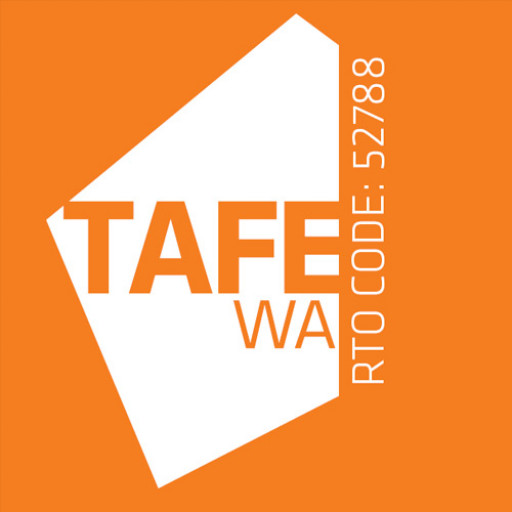Photos of university / #utsengage
The Master of Strategic Supply Chain Management at the University of Technology Sydney is designed to equip professionals with advanced knowledge and practical skills required to excel in the complex and dynamic field of supply chain management. This comprehensive program emphasizes strategic thinking, innovative problem-solving, and data-driven decision-making to optimize supply chain operations across various industries. Students will explore key topics such as procurement, logistics, inventory management, supply chain analytics, risk management, and sustainable practices, ensuring they are prepared to lead and transform supply chains in a globalized economy. The program integrates theoretical frameworks with real-world applications through case studies, industry projects, and collaborations with leading organizations. Delivered by experienced academics and industry practitioners, the coursework fosters critical analysis and strategic foresight. Graduates of this program will be capable of designing resilient, efficient, and environmentally responsible supply chains that align with organizational goals. The curriculum also addresses emerging trends such as digital transformation, automation, and the use of artificial intelligence in supply chain processes. With a strong focus on leadership, communication skills, and ethical considerations, the Master of Strategic Supply Chain Management prepares students for senior roles in procurement, operations, logistics management, and consultancy. Whether seeking to advance current careers or transition into supply chain leadership, students gain a global perspective and practical expertise essential for navigating the complexities of modern supply networks. Upon completion, graduates will be well-positioned to contribute to sustainable economic growth and competitive advantage for their organizations in an increasingly interconnected world.
Strategic Supply Chain Management at the University of Technology Sydney is a comprehensive program designed to equip students with in-depth knowledge and practical skills to excel in the dynamic field of supply chain operations and management. This program covers a wide range of topics crucial for understanding and optimizing supply chains in various industries. Students will explore the fundamentals of supply chain strategy, logistics, procurement, and operations, along with emerging trends such as digital transformation, sustainability, and risk management. The curriculum emphasizes critical thinking and problem-solving abilities through case studies, real-world simulations, and collaborative projects, preparing graduates to develop innovative solutions to complex logistical challenges.
Throughout the program, students will learn to analyze supply chain processes and design effective strategies that improve efficiency and competitiveness. They will gain proficiency in supply chain planning, inventory management, supplier relationship management, and demand forecasting. The program also delves into the role of technology in supply chain management, including enterprise resource planning (ERP), Big Data analytics, and blockchain applications, ensuring students are well-versed in the tools shaping the future of the industry.
In addition to technical skills, the program focuses on leadership and strategic decision-making, enabling students to lead cross-functional teams and contribute to organizational success. Industry placements, internships, and networking opportunities with leading companies are integral to the program, providing real-world experience and professional connections. Graduates will be prepared to pursue careers in supply chain consultancy, logistics management, procurement, operations management, and supply chain strategy roles across diverse sectors such as manufacturing, retail, healthcare, and government.
The program’s structure combines rigorous coursework with practical application, driven by expert faculty with rich industry backgrounds. By the end of the program, students will have developed a comprehensive understanding of global supply chain issues and the skills necessary to implement strategic solutions that add value and sustain competitive advantage in a rapidly changing environment.
- Applicants should have completed a UTS approved bachelor's degree, or an equivalent or higher qualification, or filed additional evidence of general and professional qualifications that demonstrates potential to pursue graduate studies. Applicants with no degree require eight years' full time relevant work experience and evidence of a general capacity to undertake tertiary education. The English competency requirement of global students or neighborhood applicants with international qualifications is: Academic IELTS: 6.5 overall with a writing score of 6.0
- Or TOEFL: paper based: 550-583 complete with TWE of 4.5, internet based: 79-93 complete with a writing score of 2-1
- Or AE5: Pass
- Or PTE: 58-64
- Or CAE: 176-184.
Funding options for the Master of Strategic Supply Chain Management at the University of Technology Sydney typically include a range of scholarships, government assistance programs, and financial aid available to eligible students. The university offers several scholarship opportunities specifically aimed at students enrolled in postgraduate courses, which may cover tuition fees partially or in full, depending on the criteria and the scholarship's specific conditions. International students are encouraged to explore both university-funded scholarships and external funding sources, including government-sponsored scholarships such as the Australia Awards or regional scholarship programs. Additionally, students may consider private loans or financial assistance programs available through banks and lending institutions, though these are generally entered into individually and are subject to eligibility criteria.
UTS also provides flexible payment plans that allow students to pay tuition fees in installments, easing the financial burden during the course duration. For domestic students, options such as HECS-HELP or FEE-HELP may be available, enabling them to defer payments until after graduation, thus reducing immediate financial pressure. International students often need to demonstrate proof of sufficient funds to obtain a student visa, which may include showing access to the necessary tuition fee payments and living expenses, typically secured through personal funding, sponsorships, or scholarships.
The university’s financial services department offers guidance on financial planning, including budgeting advice and information on external funding sources. Students are advised to review the specific scholarship application procedures and eligibility requirements well in advance of the beginning of their studies. It is important to note that funding opportunities and financial policies may change annually, and prospective students should verify the latest information through official UTS channels. Overall, pursuing a Master of Strategic Supply Chain Management at UTS can be financially manageable through a combination of scholarships, government assistance programs, payment plans, and external funding sources, making it accessible to a diverse range of students from different financial backgrounds.
Strategic Supply Chain Management at the University of Technology Sydney (UTS) is a comprehensive postgraduate program designed to equip students with the advanced skills and knowledge necessary to excel in the dynamic field of supply chain and logistics management. This program focuses on developing strategic thinking and analytical abilities needed to optimize supply chains, improve operational efficiency, and create sustainable competitive advantages for organizations across various industries.
The curriculum covers a broad range of topics including supply chain strategy, logistics, procurement, inventory management, risk management, and the impact of digital technologies such as big data analytics, blockchain, and artificial intelligence on supply chains. Students are also introduced to contemporary issues like globalization, sustainability, and ethical sourcing, ensuring they are prepared to address modern challenges in supply chain management.
This program is ideal for professionals seeking to advance their careers in supply chain management, logistics, procurement, or operations. It often attracts individuals with backgrounds in business, engineering, or related fields who aim to enhance their strategic leadership capabilities. The coursework involves a combination of theoretical frameworks and practical case studies, encouraging students to apply their learning to real-world scenarios. Collaborative projects and industry partnerships are integral parts of the program, providing valuable networking opportunities and insights into current industry practices.
The program is delivered through a flexible learning model that includes on-campus lectures, online modules, and interactive workshops, allowing students to balance their studies with existing professional commitments. UTS’s emphasis on industry relevance ensures that the content remains updated and aligned with current trends and technological advancements.
Graduates of this program are well-positioned to take on senior roles such as supply chain manager, logistics director, procurement executive, or operations strategist. They are equipped to influence organizational strategy, implement innovative supply chain solutions, and contribute significantly to business success in a competitive global marketplace. UTS’s reputation for producing industry-ready graduates and its strong links with leading companies provide students with valuable employment pathways after completing their studies.
Overall, the Strategic Supply Chain Management program at UTS offers a rigorous, practical, and forward-thinking education that prepares students to lead and innovate in the increasingly complex and digitally driven supply chain environment. It emphasizes the integration of strategic decision-making, technological proficiency, and ethical considerations, ensuring graduates can effectively manage the challenges and opportunities of modern supply chains.









